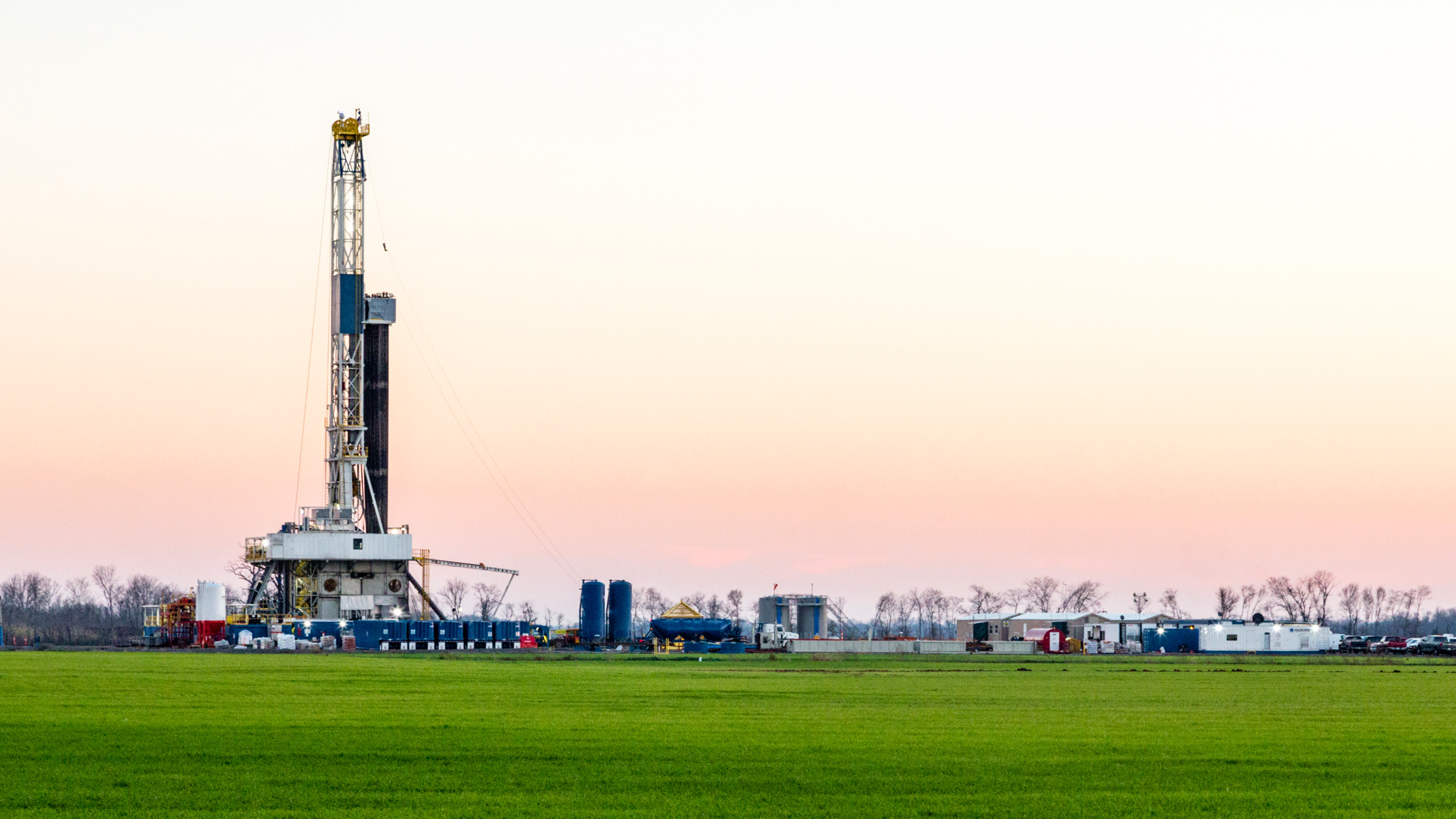This is a story about natural gas leakage, and we’re not talking about what happens after your grandfather says, “Pull my finger!”
Recent reports in journals such as Science and the Proceedings of the National Academy of Sciences have carried some depressing news: Natural gas, the “bridge fuel” touted by President Obama for its lower CO2 emissions and domestic abundance, may not actually be better for the climate than coal. Natural gas is mostly methane, which is half as carbon intensive as coal when it’s burned, but when it’s released directly into the atmosphere, it’s 86 times worse for the climate than CO2 over a 20-year time frame. Rampant methane leakage in the fracking process and from pipelines raises natural gas’s total greenhouse gas emissions; the studies estimate that more than 2 percent of gas in the U.S. may escape through leaks.
It doesn’t have to be this way. The technology already exists to dramatically reduce methane leakage for a reasonable price. Environmental groups have put out reports outlining how. They could serve as a template for the oil and gas industry to follow voluntarily, or for the EPA to require under the Clean Air Act.
In 2011, the EPA issued rules governing leakage of volatile organic compounds from new natural gas wells. Those rules also help prevent methane leakage. But they only apply at the early stages of the extraction process; further downstream, leakage is unregulated. Environmentalists see three main ways the rules need to be expanded: they have to cover existing wells, cover methane itself, and cover wells that frack for oil, not just gas, as oil wells in the Bakken Shale, for example, also leak methane.
The Natural Resources Defense Council issued its “Leaking Profits” report in 2012 suggesting how the natural gas industry could profitably reduce methane leakage. Any gas you don’t lose to leakage can be sold. “Ten technically proven, commercially available, and profitable methane emission control technologies together can capture more than 80 percent of the methane currently going to waste,” NRDC wrote. And that would bring in more than $2 billion in revenue each year, which NRDC believes would more than cover the cost of implementation.
On Monday, the Environmental Defense Fund published a report with a much dryer title and a slightly less optimistic assessment. It found, “Industry could cut methane emissions by 40 percent below projected 2018 levels at an average annual cost of less than one cent per thousand cubic feet of produced natural gas by adopting available emissions-control technologies and operating practices. This would require a capital investment of $2.2 billion, which Oil & Gas Journal data shows to be less than 1% of annual industry capital expenditure.”
The bottom line in both reports is the same, though. The oil and gas industry could significantly reduce methane leakage for almost no net cost. And the groups agree on the biggest four steps needed, which would account for most of the methane savings:
- Green completion technology. Sometimes a well is open briefly while not being tapped, because it’s being repaired or is in the process of being opened or closed. Gas can escape at those times, but green completion technology, which involves portable equipment, can capture that gas. The EPA already requires use of this technology at new natural gas wells.
- Improved leak detection technology. It’s hard to patch leaks if you don’t know where they are, and it’s hard to find leaks in the vast apparatus of underground gas wells and pipelines. Deploying technologies such as infrared cameras and gas sensors would make it possible to detect far more leaks.
- Compressor station maintenance. Leakage throughout the supply chain could be reduced through better maintenance of compressor stations, quickly sealing worn-out areas.
- Switch to low-bleed or no-bleed pneumatic controllers. Gas flow through pipelines is regulated by pneumatic devices, which are typically also powered by gas. But in most cases the industry could switch to devices that release less gas as part of that process, or none at all.
If this really were profitable, as NRDC claims, one wonders why the gas industry isn’t doing it already. Some companies are, in fact. But gas companies are also weighing the costs and benefits of reduced methane leakage against other, more profitable ways of investing their capital, such as drilling new wells. Reducing methane leakage from 2 percent to 1 percent of the total volume of natural gas extracted would be enormously beneficial for the climate because methane released straight into the atmosphere has such a strong warming impact. But to a gas company, it’s just 1 percent more gas to sell. “If you have $10,000, would you put it into leak reduction or something else with a greater return?” asks Vignesh Gowrishankar, a scientist at NRDC.
And if these steps aren’t even profitable but merely very cheap, as EDF’s analysis suggests, then why would gas companies do them at all? The group’s answer is that it is good, cheap PR.
But neither organization is naive enough to think that gas companies can simply be trusted to do this out of the goodness of their hearts. The EPA, they argue, has the authority and the obligation under the Clean Air Act to require gas well operators to adopt these measures. “We are pushing the EPA to do this,” says Gowrishankar, noting that President Obama’s Climate Action Plan contains a section on reducing methane emissions. The plan does not, however, actually state that the administration will promulgate new rules on methane leakage from existing wells.
Yesterday EPA instituted new rules to slash sulfur in gasoline, which will require refiners and automakers to adopt new technology. New rules on methane leakage would accomplish the same broad goal: making industry pay to clean up its pollution so it can no longer offload the cost onto society.
Think of it as forcing grandpa to buy some Beano, for his family’s sake.




